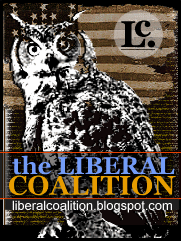This last weekend I purchased the DVD collection of Greg the Bunny a show that was on Fox for about two months starring Eugene Levy and Seth Green. I enjoyed it the first time around, and I'm enjoying it the second time around. But there are some niggling questions.
Greg the Bunny is an alternate universe, one in which puppets exist as individuals, as part of society. The first episode starts with this little monologue about how there are millions of puppets living in America but they can't get jobs or date human daughters and so on. So right off the puppets are set up as a minority group, underlined when Greg looks hopefully at a help wanted sign only for the owner of the store to put up a "Humans only" sign. Greg gets a job on a syrupy kids show directed by Eugene Levy. His roommate is Seth Green. Sarah Silverman plays a network exec. Most of what the show is about is the unpleasant world of creating a children's television show. But there are a couple of episodes that deal directly with Greg's "puppish" culture.
One, "Greg gets Puppish" concerns a Jesse Jackson / Al Sharpton like figure called Hurbada Hymina who gives Greg a "Puppish" name (Bizzleburb, which he can't remember), and encourages him to promote his Puppish culture. This is clearly a riff on African Americans adopting their African roots, but it's not very convincing. The idea that a Puppet could seek out his puppish roots is presented as ridiculous, and the episode ends with Greg completely abandoning his puppishness.
"Sock like Me" is even more confusing. Greg is in the urinal with Jimmy and notices that everybody has been insulted in Urinal Grafitti except himself. Jimmy explains that that's because everybody thinks that Greg can't take a joke. So Greg, after Jimmy Leaves, sets out to prove him wrong by writing "Greg is a dirty filthy sock who should die." Of course part of the joke is that Greg seems to genuinely think that is funny. But what makes this episode really disturbing is that Sock is presented as the puppet equivalent of "N*****."
Now imagine to yourself a moment, any black character, no matter how innocent, writing in a urinal, about himself, "[the name] is a dirty filthy N***** who deserves to die." Disturbing isn't it? That said the episode pretty much pulls it off by shifting the focus to another cast member (who's mother ran off with a puppet).
By recontextualizing cultural concerns and bigotry, the show makes them harmless and even laughable. We have to pay lip service towards respecting African Culture, but we can go ahead and laugh at Puppish culture. How big a stretch is it from that to laughing at African Culture? The racial incident in "Sock Like Me" is created by a puppet; isn't it easier on us to imagine such racial incidents in the real world are created by blacks and other minorities?
This recontextualization of Racism goes on a lot, and with good reason. It let's us say things about racism that are hard to say when you are talking about actual blacks (at this point I'd like to point out that the idea that there is an oppressive culture of Political Correctness that prevents us from talking about race honestly is BS, at least in this context (although I think it's BS in general too). The fact is that some arguments should be held up to moral disapproval. If someone wants to argue that African culture is ridiculous and stupid, they are free too. But that argument
should be despised.).
Another ongoing example of this recontextualization of racism is found in X-men Comics and Movies. Now to be fair, I'm pretty sure that neither Stan Lee (creator of the X-Men) or Chris Claremont (their most famous writer) has anything negative to say about Blacks or other minority groups. Rather their point (in so far as they had one beyond telling stories) was to point out the harm that racism can do to individuals.
But the argument is sort of neutered by the fact that the Mutants really do pose a threat. Black people can't blow up stuff with their minds; some mutants can. And Mutant Terrorists have been running around the Marvel Universe since the 1960s. It would help if more Mutants had useless powers, but, this being a comic book, most of them seem to have amazingly destructive powers. It would be easy enough to do a comic book from the point of view of an anti-mutant team, dedicated to preventing mutants from hurting humans by any means necessary. And how might that play into our fears of black communities, or even better, Muslim communities. Now I'm sure these implications are far from most of the X-man writers minds. Nevertheless they do exist.
Anyway despite the racial questions posed by Greg the Bunny, it is still quite a funny show, particularly when it focuses on the back stage personalities. So I still recommend it.

